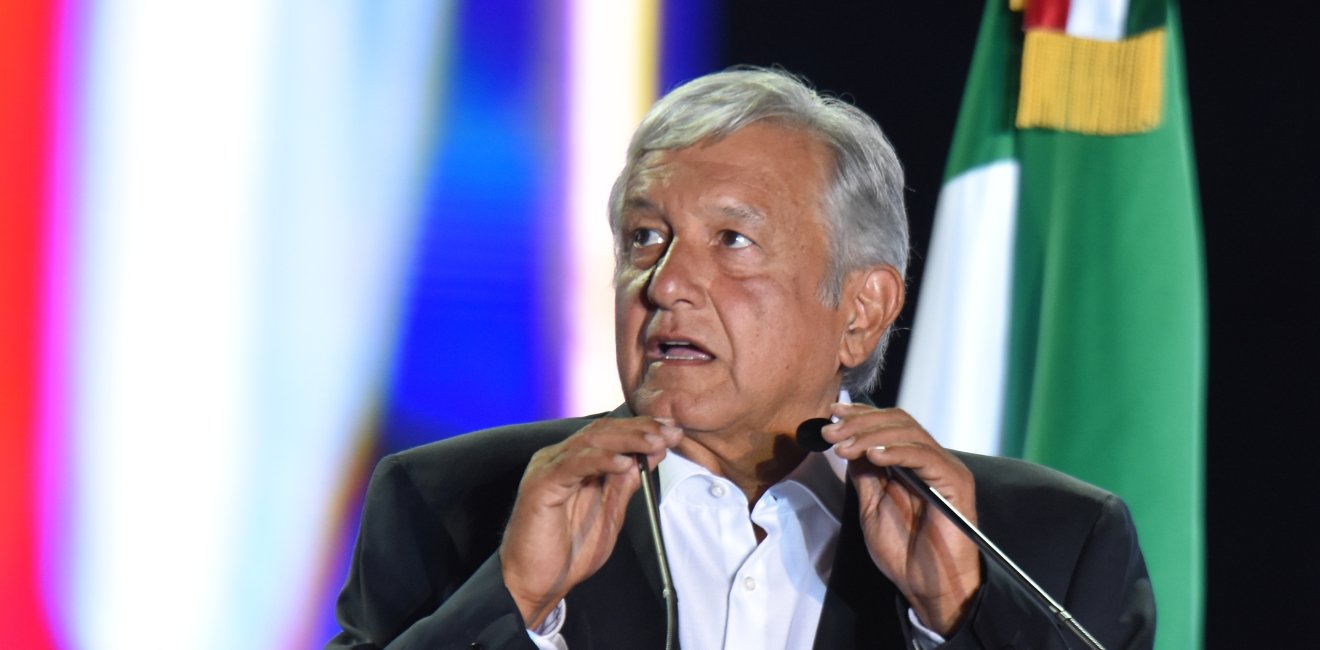Russian aggression against Ukraine may jeopardize Mexico's relationship with the United States. This is the opinion of many Mexican commentators, who are generally critical of President Andrés Manuel López Obrador (AMLO). It is a war (a word forbidden by the Russian government) that has universal repercussions, something that does not seem to be understood by a president who has not shown any personal interest in international relations, unless it is to complain to Spain, to the European deputies, or to Antony Blinken for his judgment on the murders of journalists.
On February 24, AMLO flatly refused, in his morning conference, to condemn the Russian invasion. Several hours later, it was left to the Secretary of Foreign Affairs, Marcelo Ebrard, under pressure from the European Union and the Ukrainian ambassador, to undo the mess. Since that day, the Mexican government has presented itself as a Janus bifrons, in its bipolar dimension. On the one hand, the president refuses to condemn the aggressor, specifies that Mexico will never retaliate against Russia (his Secretary of Tourism celebrates the arrival of Aeroflot in Mexico), condemns the aid promised by Washington to Ukraine (not only military, but also humanitarian); on the other hand, his minister Ebrard, in the role of fireman who puts out the fire set by his boss, associates with Paris at the UN, to present a Franco-Mexican resolution which not only calls for peace, but condemns the Russian aggression and achieves, at the General Assembly, on March 24, that 90 countries call for "the immediate cessation of hostilities by Russia against Ukraine and in particular any attack against civilians and civilian targets". Under the leadership of Marcelo Ebrard, the Mexican representative had voted for the first resolution demanding Russia to end its war against Ukraine.
In contrast, AMLO guaranteed: "We are not going to retaliate (against Russia) because we want good relations with everyone... We do not consider that this is our responsibility, and we think that the best thing to do is to promote dialogue for peace". He did not even say "no bullets, hugs", a message aimed at organized crime in Mexico. When he added that "we cannot be in favor of invasions," he immediately pointed out that Mexico had been the victim of many invasions throughout its history, in a clear allusion to the US war of aggression (1846-1848). Commentators stated that such statements could well affect the bilateral relationship with the United States.
Mexico plays a certain role in the Kremlin's strategy: in December last year, when Putin was amassing armed forces on the Ukrainian border, he declared: "We are not deploying our missiles on the borders with the US, no. On the other hand, the US is deploying its missiles at our doorstep (alluding to Ukraine's eventual entry into NATO), at our doorstep. Are we demanding something excessive? We are simply asking them not to deploy their attack systems on our doorstep. What would the US think if, for example, we decided to deploy missiles on the Canada-US border, or Mexico? Did Mexico and the US never have territorial disputes? What about California? Texas? Did they forget about that? Nobody remembers those things, but how well they remember Crimea." He did not promise to return lost territories to Mexico in exchange for its support, but his words remind the historian of the famous Zimmermann Telegram of 1917.
López Obrador has taken the Russian side; Marcelo Ebrard limits the damage. The president and the "Bolivarian'' intellectuals surrounding him lack understanding. They invoke the Mexican doctrine of "non-intervention" and forget that Lázaro Cárdenas supported, even with weapons, the Spanish Republicans against the Nationalist rebels; that Mexico entered World War II against the Axis; that President Echeverría broke off relations with Pinochet's coup government. Why such convenient amnesia? AMLO's instinctive sympathies go to the side of Cuba, Venezuela, Nicaragua, and therefore Russia. Which contradicts the agreement signed on September 9, 2021, between Mexico and the US "to best ensure that the US and Mexico face the challenges of our time and ensure that our peoples prosper."
"The intimate group that surrounds the president and that promotes the pre-candidacy of Claudia Sheinbaum, has a voice that is expressed in the editorial spaces of the newspaper, La Jornada." (Pablo Hiriart, "Andrés Manuelovich", El Financiero, March 2, 2022). His thesis, adopted by many, is that, although the war is to be regretted, the responsible party is Washington and NATO, because it wants to recover its world hegemony, threatened by Russia and China. For them, Vladimir Putin is "a leader who defends Russia's freedom to relate with progressive countries such as socialist Cuba, or Bolivarian Venezuela." La Jornada states, "Ukraine, the difficult truth. In the prolongation of the ‘Cold War,’ the West insisted on installing a Russophobic government in Kiev, which gave rise to the rebellion of the Russian majority regions and generated a sort of civil war".
That is why the organization Morena Youth (Juventudes de Morena) of the State of Mexico supports Russia and receives the gratitude of the Russian ambassador; that is why certain deputies of the government majority form a Mexico/Russia Friendship Group and invite the Russian ambassador to Congress (March 23, 2022). Mexico's former ambassador to the US, Arturo Sarukhan expressed that this, "portrays full-length the stale, rancid and aimless left that Mexico does not deserve." When the Russian ambassador thanks the deputies and says, "today, in the world, there are countries like China, like India, like Mexico, that at Uncle Sam's command will never answer ‘yes, sir,’” what can they think in Washington? Not only in Mexico, but throughout Latin America, there are people who sympathize with Russia. Why? Beyond the "Castroist" nostalgia, there is the old Yankee-phobia. In World War I and World War II, many Mexicans (not all) were Germanophiles because Germany was the adversary of the US.
A first message came from Washington: the US Northern and Southern Command expressed their concern about the presence of numerous Russian intelligence agents (military intelligence, G.R.U.). Wise words in a few words.
Author


Mexico Institute
The Mexico Institute seeks to improve understanding, communication, and cooperation between Mexico and the United States by promoting original research, encouraging public discussion, and proposing policy options for enhancing the bilateral relationship. A binational Advisory Board, chaired by Luis Téllez and Earl Anthony Wayne, oversees the work of the Mexico Institute. Read more

Explore More
Browse Insights & Analysis
The OSCE is a Good Value for America



